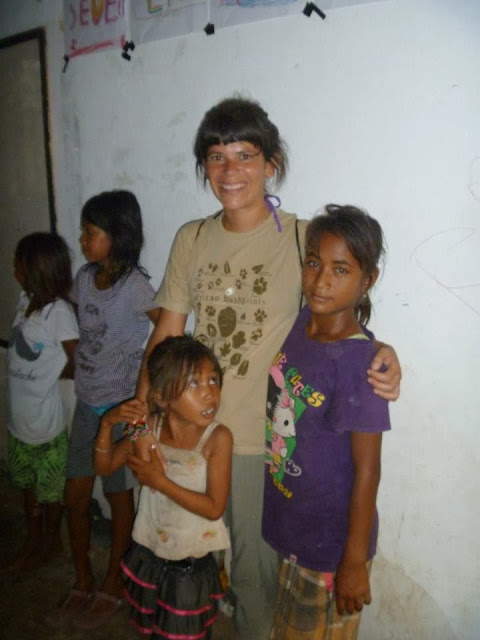Sumbawa…infinite smiles
Hello friends!
I am writing to you from almost the end of my trip... in just two weeks I will be back in Madrid.
Right now I am on the island of Sumbawa and I have come to visit the project of Carlos, a Spanish guy, a lawyer by profession, who decided to leave everything 5 years ago to try to fight for his dream, which is to build a socio-educational centre in the area of Hu'u, one of the poorest areas of this island.
Indonesia is a huge country that encompasses as many cultures, peoples, biodiversity in nature and richness in food as if it were a hundred countries in one. With more than 17,000 islands, 300 different languages and a large percentage of the population (it is the fourth most populous country in the world), it is a paradise for many. However, the reality is quite different for a large percentage of its inhabitants. There is no public health care and public education is non-existent for many families.
There are a number of important issues related to education:
- Education in Indonesian schools is of very low quality.
- It has no technical-vocational content, which means that there is practically no chance for young people to succeed in finding a career.
- Child labour is a major problem in Indonesia; at least 2.3 million children aged 10 to 14 and 3.8 million children aged 15 to 18 work to support their families.
The project I am visiting is on the island of Sumbawa, east of Bali. It is only two islands away from Bali and yet it seems like two different countries. Bali is a very developed island in terms of tourism and economy, perhaps too much so. Every day thousands of tourists arrive in Bali from all over the world. Sumbawa, on the other hand, with almost three times the size of Bali, receives only a few tourists a week, and not only that, but the population hardly knows how to exploit its tourist offer, which could help them to escape from the extreme poverty in which they live.
Although Indonesia has an official literacy rate of 91%, the school dropout rate is 50% for six-year basic education. In Hu'u, where the project is located, the illiteracy and dropout rates are much higher.
On the other hand, there are many childhood diseases, mainly caused by malnutrition and poor health care. In addition, there are gold mines on the island (operated by Australians) with serious consequences for the population and the environment. The elements used for gold mining are mercury and cyanide, both of which are highly harmful to health, not only for the miners but also for the rest of the population. The lack of collection of the mercury waste means that these sediments slowly find their way into the water channels that supply the municipalities, contaminating them and the fish. Fish do not die from ingesting mercury waste, but when they receive it, they transform it into the more toxic form of mercury called methylmercury, which then affects the people who consume it. Of course, in Sumbawa there is no water treatment system to disinfect it properly, nor is it possible to control the contamination of fish, which is why it is very common to see children (and adults, especially pregnant women) with huge stones, tumours, etc., without taking into account that there are not so obvious effects that affect the nervous system (poor learning and information retention capacity; reduced hearing capacity, deficiencies in the senses of smell, taste and touch; muscular atrophy, alterations in the digestive system, etc.).
The Harapan project works by providing extracurricular education and health care, covering about 500 children as direct beneficiaries in the area of education and about 400 who have received health treatment (of which about 60 children have undergone surgery). Volunteers from almost every branch are needed because the project has a large magnitude, difficult to be managed exclusively by Carlos who is the one who is every day at the foot of the cannon. Here are some pictures of some volunteers in action: Luis, Elena, Joan and Carlos, thanks for the good moments we have shared together.
And now a sample of the really important ones, their beneficiaries. As you can see, in spite of everything mentioned above: lack of education, lack of health, lack of opportunities... the children always have a smile on their mouths and looks that can melt even the "least nurturing" of us.




